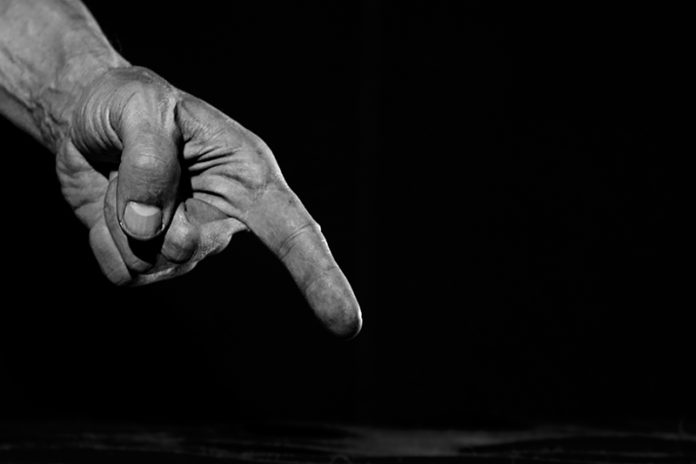When did the political systems of 193 nations become the business of the government of the United States? And who elected us Americans to write the moral code for the regimes that rule other lands?
Consider: On taking office, President Joe Biden pledged to center his foreign policy “on the defense of democracy and the protection of human rights.” At his Summit for Democracy, he said it was America’s intent to undertake the bolstering of democracy and human rights worldwide.
Yet no nation bristles more than we Americans do when we discover foreign regimes meddling in our politics or presidential elections.
Why? Historically, Americans have collaborated not only with democracies but also with autocrats, dictators, monarchs and tyrants.
George Washington danced a jig when he learned an alliance had been forged with the France of King Louis XVI to fight beside us in our war of independence against the England of King George III, in whose army Washington had himself fought in the French and Indian War.
In the War of 1812, the United States fought the same British enemy as Napoleon was fighting, which may explain why the British enthusiastically burned our Capitol and White House in August 1814.
In World War I, we “make-the-world-safe-for-democracy” Americans were wartime allies of the British, French, Russian and Japanese empires.
At the 1919 Paris Peace Conference, President Woodrow Wilson signed the documents that parceled out Germanic lands and peoples against their will and in violation of Wilson’s own professed doctrine of self-determination.
Against Imperial Japan and Nazi Germany from 1941 to 1945, our principal allies, whose armies did most of the fighting and dying, were Joseph Stalin and Generalissimo Chiang Kai-shek. Neither was a democrat.
During the Cold War, we were at times allied with South Korean dictators, Argentine generals, Greek colonels, the shah of Iran, Gen. Augusto Pinochet of Chile, Latin American despots, African kleptocrats and assorted royals across the Middle East.
The world’s largest democracy during the Cold War was India, which sided with Moscow, while autocratic and Muslim Pakistan lined up with us.
President Richard Nixon’s great diplomatic achievement, the 1972 opening to China, established a detente between the world’s greatest democracy and its most monstrous and murderous tyranny. U.S. elites were elated.
The point of the recitation? In times of crisis for our republic, we have often found allies in autocrats and dictators while democracies such as India and Sweden remained basically neutral.
Nations judge friends not by the ideology that they profess but by how they behave when a crisis comes.
When the Yom Kippur War broke out in 1973, autocratic Portugal allowed the use of the Azores for U.S. planes carrying tanks and guns to Israel. Some of our other allies remained neutral.
Lately, we have been preaching the superiority of our democracy as a political system for all peoples, as it manifests “universal values.”
But if tomorrow the kings of Morocco, Jordan, Bahrain and Saudi Arabia, and the emirs of Kuwait and the United Arab Emirates, fell to popular uprisings in the name of democracy, how beneficial would this be to the U.S.?
A decade ago, when the Arab Spring produced free elections in Egypt and the Palestinian territories, the big winners were the Muslim Brotherhood and Hamas.
Again, when did the political systems of foreign nations that do not threaten or attack us become an American concern?
When did they become any of our business?
During the Cold War, Stalin imposed communism on that half of Europe he had conquered in World War II. Nikita Khrushchev brayed, “We will bury you!” and, “Your grandchildren will live under communism.”
But Russian President Vladimir Putin does not say, “Your grandchildren will live under communism” or under autocracy. Or under Russian rule.
Nor does the China of Xi Jinping, who preaches the supremacy of his system, attempt to impose communist ideology on his neighbors who have not embraced it.
China is communist to the core, but outside the territories it claims as its own — such as Tibet, Xinjiang, Hong Kong, Inner Mongolia — it does not impose its ideology. It does not impose Communist Party rule.
It was the U.S. under President George W. Bush that preached a global crusade for democracy. It is the United States that today backs color-coded revolutions to overturn regimes in the Balkans, Caucasus and Near East.
It is the United States whose National Endowment for Democracy and its subsidiaries, and government-backed NGOs, interfere incessantly in the internal affairs of other nations to extend our democratist ideology.
Most autocrats are nationalists, not transnational crusaders.
It is not Putin who is dividing the world based on ideology.
It is Biden who sees the world as divided between saints and sinners, democrats and autocrats and, by coercion and conversion, seeks to grow the camp of the saints. Pakistan is invited to the democracy summit, while NATO ally Hungary is blackballed.
In the great power struggle of the present, among America, Russia and China, it is the Americans who are waging relentless ideological wars. And ideological wars often end in shooting wars.































